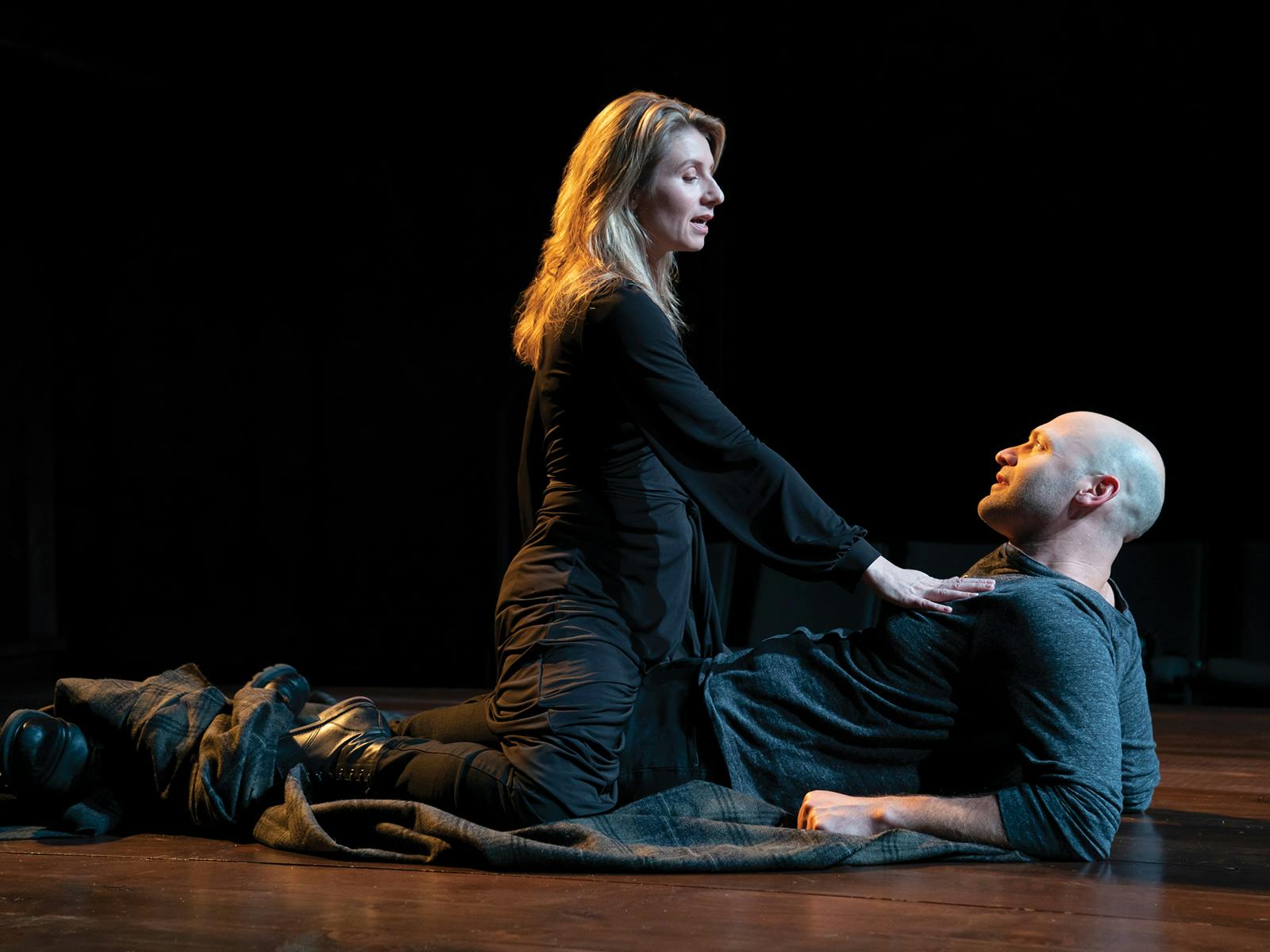
Although Macbeth succeeded without a rival in 1040, by 1054 he was the target of opposition when Siward, Earl of Northumbria, invaded Scotland. He and his wife Gruoch ruled for 17 years and a day, until 15 August 1057. The importance of royal blood, that is, the inheritance of the divine right to rule, is emphasized when, in the final scene, Duncan's son Malcolm takes the title of king, with the words "by the grace of Grace / We will perform. Macbeth became King of Scots immediately without opposition. Macdonwald - Before the start of the play, Macbeth kills the treacherous rebel Macdonwald. The doors to Duncan’s chamber are open, and the snores of the drunk servants make a mockery of their job of guarding him. Answer (1 of 5): There are lots of deaths in the play but the number is debatable, as what counts as a death can be debated.

When Three Witches predict that he will one day be king of Scotland.
#WHO WAS MACBETH SKIN#
This "divinity" of the king is made clear on several occasions in the play, most notably when Macbeth talks of the murdered Duncan as having "silver skin lac'd with. That was the shriek of an owlan omen of death like the bell struck at midnight by the night watchman before the cell of a man condemned to death. Macbeth A captain in Duncans army, later the Thane (Lord) of Glamis and Cawdor. Most importantly, Duncan is the representative of God on earth, ruling by divine right (ordained by God), a feature of kingship strongly endorsed by King James I, for whom the play was performed in 1606. Duncan also expresses humility (a feature that Macbeth lacks) when he admits his failure in spotting the previous Thane of Cawdor's treachery: "There's no art to find the mind's construction in the face" (I: 4,11).


His language is formal and his speeches full of grace and graciousness, whether on the battlefield in Act I, Scene 2, where his talk concerns matters of honor, or when greeting his kind hostess Lady Macbeth in Act I, Scene 6. The king of Scotland should be a figurehead of order and orderliness, and Duncan is the epitome, or supreme example, of this.


 0 kommentar(er)
0 kommentar(er)
